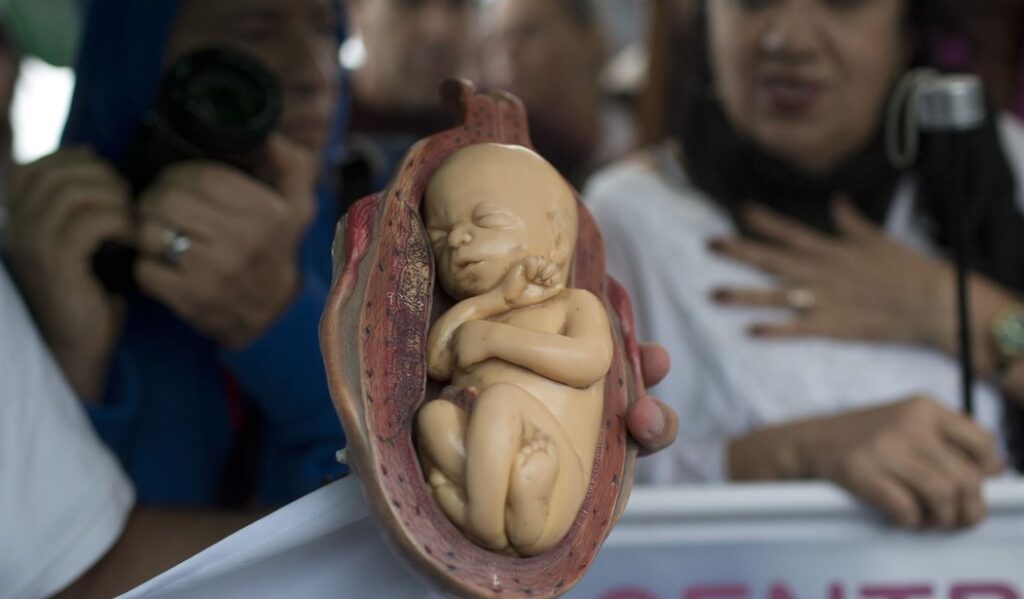ACLU Seeks to Force Catholic Hospitals to Perform Sterilizations

The American Civil Liberties Union (ACLU) is seeking to force Ascension Health, the largest non-profit health system in the United States, to violate the principles animating its Catholic mission by performing sterilizations on patients.
On October 25, the ACLU announced that it had filed an administrative complaint with the Office for Civil Rights (OCR) at the U.S. Department of Health and Human Services (HHS) against Ascension and one of its subsidiaries, Genesys Health System. The basis for the complaint was the allegation that the Catholic health care provider had “refused medically necessary treatment to a pregnant woman on religious grounds.” By doing so, the complaint argues, the health provider violated Section 1557 of the Patient Protection and Affordable Care Act (ACA).
Section 1557 of the ACA prohibits discrimination on the basis of sex in health care programs receiving federal funds. Specifically, “an individual shall not, on the ground prohibited under … title IX of the Education Amendments of 1972 … be excluded from participation in, be denied the benefits of, or be subjected to discrimination under, any health program or activity, any part of which is receiving Federal financial assistance.” Ascension and Genesys accept Medicaid and Medicare funding.
The complaint was filed by ACLU on behalf of Jessica Mann. Mann, a resident of Flushing, Michigan, had been a patient at Genesys for 16 years, delivering her first two children at a Genesys medical center in Grand Blanc, Michigan. When she found herself pregnant with her third child, a preexisting brain tumor raised complications.
“Because Mrs. Mann had a pre-existing brain tumor that could be life-threatening when strained by pregnancy, her doctors strongly recommended that she undergo a tubal ligation at the time of her scheduled cesarean delivery, when the sterilization procedure is safest and most effective,” the complaint reads. Tubal ligations are convenient when sequenced with a cesarean delivery, as the same incision can be used to perform both procedures. Moreover, Mann was going to be under full anesthesia during her delivery due to a risk of seizures brought on by her brain tumor, so performing the sterilization immediately postpartum would remove the need for two separate rounds of anesthesia.
Mann was comfortable at Genesys, and her primary OB-GYN has admitting privileges only at the Genesys Regional Medical Center, so she planned on delivering her third child there. Her doctor recommended that she avoid future pregnancy after delivering her third child. They wrote to the medical center in May of 2015 requesting that the hospital make an exception to its rule against performing direct sterilizations in Mann’s case so that she could both deliver her baby and receive tubal ligation at the same time at the hospital.
The hospital responded on September 1, 2015—roughly seven weeks ahead of Mann’s due date, October 24—denying the request and suggesting that Mann deliver her baby at the hospital and have the sterilization performed at another hospital. The hospital declined to reconsider its decision when prompted to do so twice by the ACLU, citing its adherence to the Ethical and Religious Directives for Catholic Health Care Services (Directives) promulgated by the United States Conference of Catholic Bishops. One of those directives states, “Direct sterilization of either men or women, whether permanent or temporary, is not permitted in a Catholic health care institution. Procedures that induce sterility are permitted when their direct effect is the cure or alleviation of a present and serious pathology and a simpler treatment is not available.”
Because the hospital gave Mann ample advanced warning that it would not perform a tubal ligation for her, she was able to deliver her baby and be sterilized at the same time at a non-Catholic hospital in her area. The Catholic hospital did not misapply the Directives in Mann’s case, as the sterilization she requested would not have directly cured or alleviated any “present and serious pathology;” that is, sterilization would not cure Mann of her brain tumor.

The ACLU nevertheless claims that the hospital’s policy caused Mann “significant harm,” and asks OCR to investigate the policies of the institutions in the Ascension system “to ensure that their policies and practices comport with the requirements of Section 1557” prohibiting discrimination on the basis of sex and to take “all steps necessary to bring them into compliance with the law.”
This is not the first time the ACLU has sought to bring the force of government to bear on Catholic health institutions to compel such institutions to violate their animating principles, but prior challenges have taken the form of lawsuits. This complaint, filed with HHS rather than a court of law, is different.
The ACLU’s charge of sex discrimination against Ascension and Genesys is based on two premises. First, the Directives lead Catholic hospitals to deny women fundamental components of “pregnancy- and childbirth-related care.” Second, Catholic hospitals deny “women, but not men, the medical standard of care” and subject women to heightened risks of unintended pregnancy.
As to the first premise, a curious leap of logic is required to make the argument that tubal ligation—which makes it impossible for a woman to become pregnant—is a component of pregnancy and childbirth care. Sterilization is the opposite of pregnancy and childbirth care, as it prevents such care from becoming necessary in the first place. In fact, many entities that perform sterilizations do not offer pregnancy and childbirth care, clearly demarcating the difference.
Even if one grants, for the sake of argument, that tubal ligation is an aspect of pregnancy and childbirth care, it nevertheless cannot be considered a fundamental component of that care. Tubal ligation is an elective procedure. There are a variety of different means available to women for avoiding risky pregnancies, meaning that no single means of achieving that end can be considered medically necessary. In Mann’s case, sterilization immediately postpartum was not medically necessary as it would neither have cured nor alleviated her brain tumor.
As for the ACLU’s second premise—that Catholic hospitals discriminate on the basis of sex in refusing to perform tubal ligations—one need only refer to the Directives, where it is plainly stated that direct sterilization “of either men or women” is not permitted in Catholic health care institutions. Catholic hospitals do not treat women differently than they treat men when it comes to sterilizations—they treat both the same by opting not to perform direct sterilizations on either.
The ACLU’s argument rests on two false premises designed to mask an ambitious attempt to coerce Catholic hospitals to perform sterilizations, despite the lack of harm done to women as a result of such policies against performing sterilizations. The only potential “damage” done to Mann by Genesys’s refusal to sterilize her after she gave birth was that she had to plan to deliver her baby and have her tubal ligation performed at another area hospital.
The ACLU’s complaint is not about protecting women from the harm wrought by the policies of Catholic health care institutions, as there is no harm to be protected from. At most, having a sterilization performed at a Catholic institution may be more convenient for a woman, sparing her the trouble of going to another hospital to receive the procedure she desires.
Mandating that Catholic health care institutions perform sterilizations raises serious questions about religious freedom. By filing this complaint, the ACLU is seeking to make convenience trump conscience in the health care arena.
Tim Bradley is a research associate at the Charlotte Lozier Institute.


























